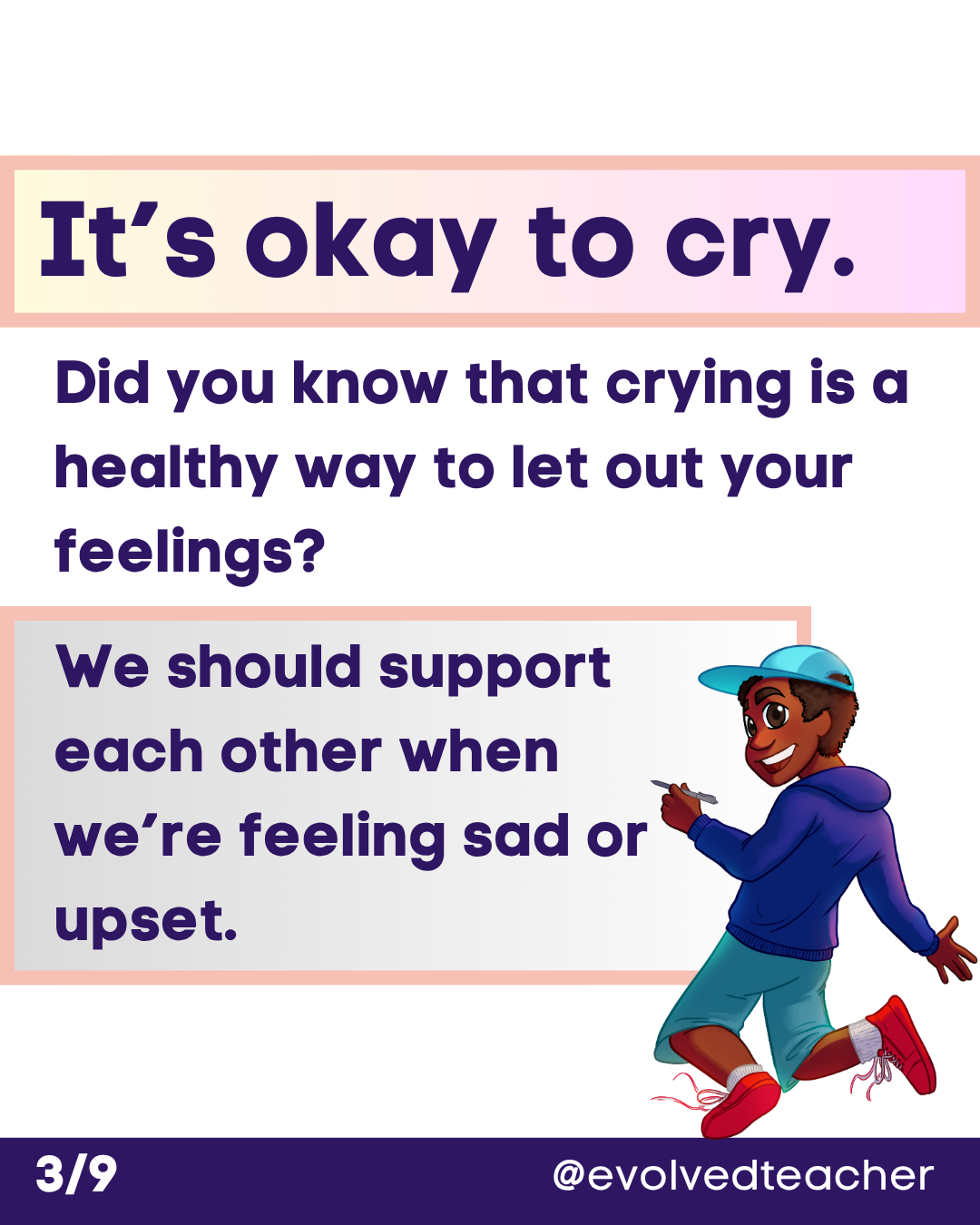Teaching Kids That Feelings Are Strength, Not Shame
Jun 11, 2025
I began this series as a fast way for educators and families to empower the vocabularies and self-esteem of their young ones.
I get that we’re all busy, so it’s just a word a day, but words are powerful. Every day, our kids are creating meaning out of the things we say, things they hear others say, and the things they learn to say to others and themselves.
Some words may seem small, but they often carry big feelings.
“Crybaby” is one of those words.
Let’s dive in 👇

Why this matters:
When we call someone a “crybaby,” we’re not just teasing. We’re telling them that showing emotion is wrong.
We’re teaching them to hide sadness instead of asking for support.
But feelings aren’t weakness, they’re a strength.

How to start the conversation
“Have you ever felt like crying, but someone made fun of you or told you to stop? That didn’t feel good, right?”
“Crying is actually one way our bodies handle big feelings. It’s normal and it’s healthy.
But sometimes, when people don’t understand emotions, they might tease or say something unkind, like ‘crybaby.’
Instead of calling someone a crybaby, we say: ‘It’s okay to cry. I’m here for you.’”
Script: What to Say When A Child Cries
“I cry sometimes, too.”
“Everyone gets sad sometimes.”
“You’re not alone. I’ve got you.”"Sometimes we use tears when we can't figure out our words. Can you tell me what your tears are trying to say?" (This one is my favorite because as a child, I rarely cried when I was sad. However, I would cry when I was angry and often felt my tears were misunderstood.)
What to look for:
Does your child laugh when someone else cries or call them sensitive?
Do they say things like “crybaby” when they’re uncomfortable with emotions?
Do they hide their own feelings out of fear of being teased?
These moments are chances to open the door to empathy.
If this word triggers YOU:
If you were told to “toughen up” or “stop crying” growing up, this might hit home.
You can say:
“When I was little, people didn’t always make space for my feelings. I want to do better with you. Your emotions are safe here.”
You’re not just rewriting the script for your child, you’re healing yourself, too.
Let’s raise kids who aren’t afraid to feel, and who know how to respond with care when others do.


